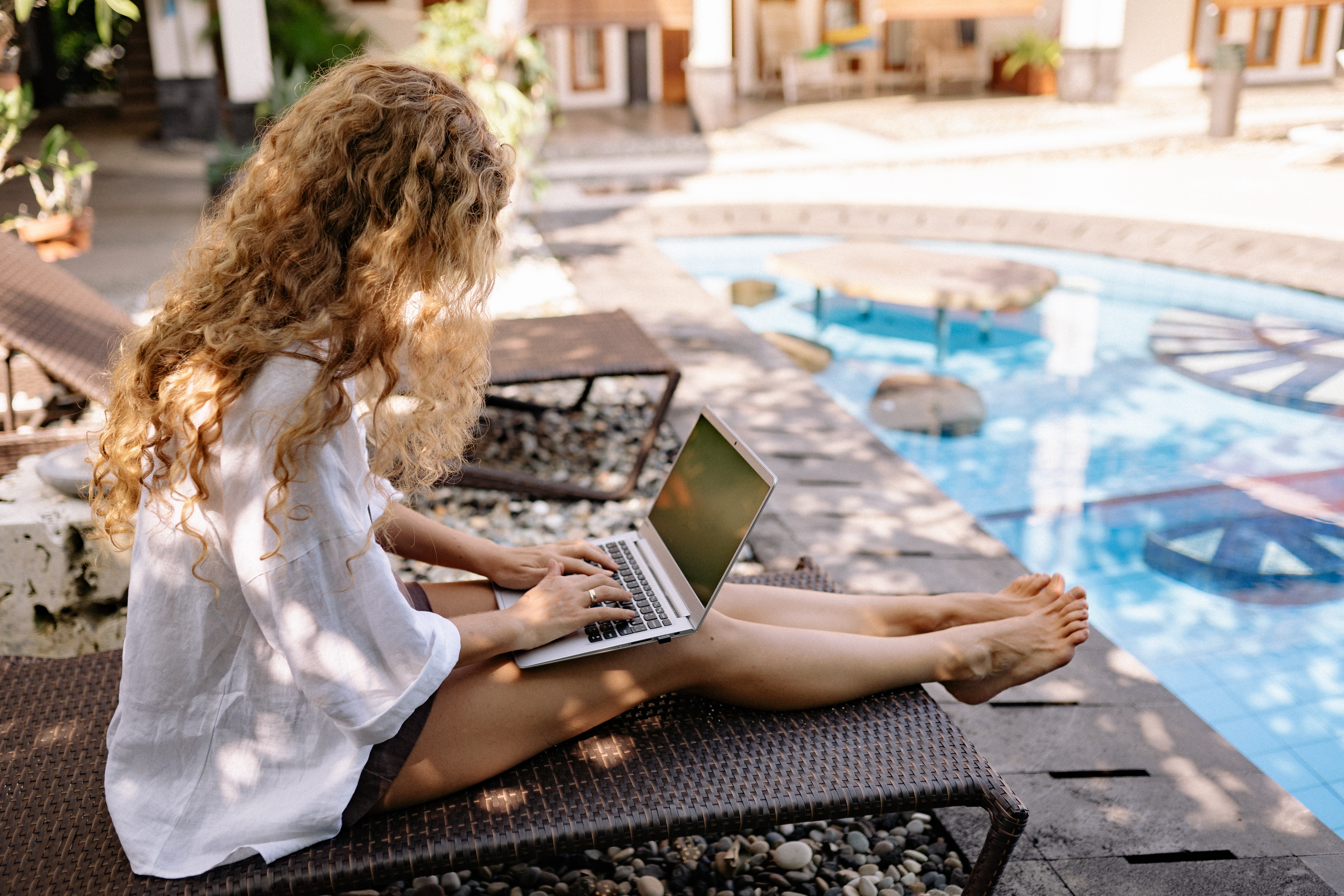
As the world's work force becomes more remote, we are afforded greater opportunities to work in a variety of locations, but before you connect to your hotel's access point for your meeting tomorrow, there are a few things to consider! Everyone who has used the internet these days has heard the term VPN, but there is still a large number of internet users who don't use one yet because they just don't really know what it is or what it does or if it is something that they even need. VPN's, or virtual private networks, are used by remote workers as a means to safely access their work environments remotely without compromising company data, but today the average internet user can see benefit from using VPNs as well. One in four internet users are utilizing a VPN to secure their internet connections.
A VPN works to protect your IP (internet protocol) address to give you more secure internet browsing. It does this by creating a virtual tunnel between a local network and an exit node somewhere else across the world, making it appear that you are connected in the other location, making you untraceable. Not only does it mask your IP address, it also encrypts your data, making it unreadable to anyone trying to intercept it. VPNs are most useful for people who use Wi-Fi connections that aren't their own personal home connection. If you travel and use a hotel's internet, the internet at a coffee shop, or any free public Wi-Fi connection, you are vulnerable to having your data intercepted by hackers. With a VPN, your location will be unknown to anyone accessing that Wi-Fi connection, and any data they could receive will be encrypted, essentially giving them useless gibberish. This is incredibly useful, and in most cases an absolute necessity, if you have to use a public connection to make online purchases, perform online banking transactions, or just the act of logging into your company's website to make a quick content change. VPNs can also protect you from some identity theft schemes, but always remember to be safe online!
There are some instances where a VPN is the only thing that will allow you to stay safe. One such attack to consider when you are remoting in from the resort bar is the evil twin attack. Malicious actors are able to create untracable perfect copies of Wi-fi access points and act as a "man-in-the-middle" to unperceptably steal your data. Once your device has been tricked into connecting to this duplicate access point, which you will unlikely be able to recognize, the attack is over, and the attacker then has complete control over your connection. With such control the attacker can eavesdrop on your data, intercept it, or even inject malicious data into your connection, thereby infecting your computer with malware. As a user your best bet to stay safe against these attacks is to add another layer of security to your connection in the form of a VPN.
Now that the world has shifted to remote work and the need to use internet connections in public places grows, VPN's are being recognized and utilized more to protect remote workers, as well as the general public when they are transacting business from some of their favorite lunch, recreation, and vacation destinations! Whether you work remotely and need to use the internet at your hotel to access confidential work files, or if you just want to kick back and watch your favorite stream in the hotel room after a long day of work, a VPN can make your life easier, safer, and more secure.
